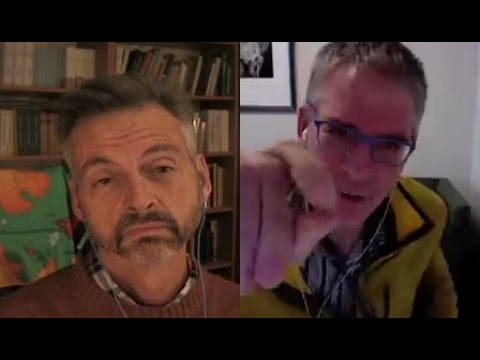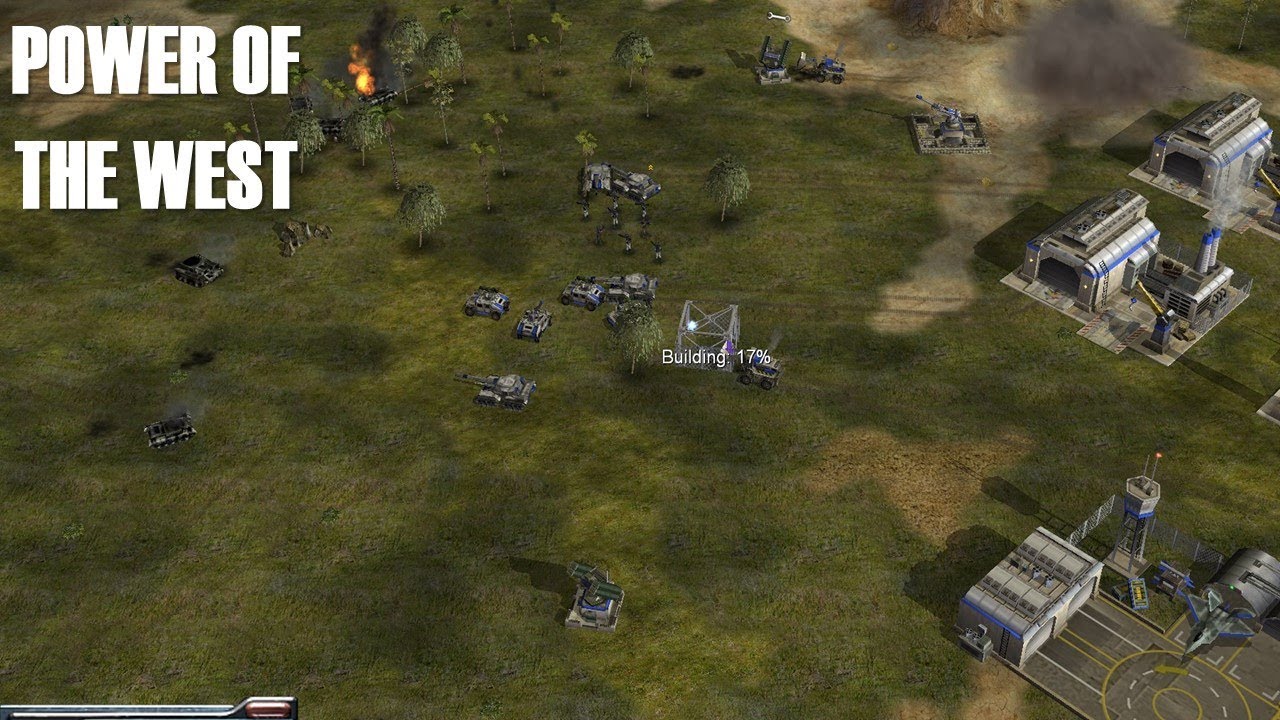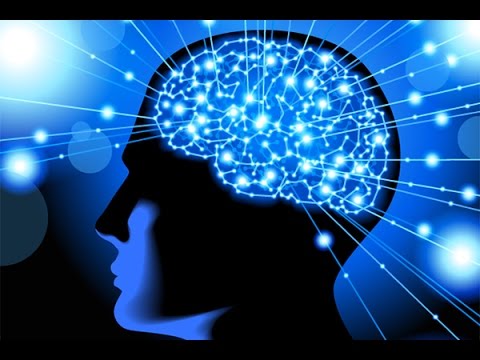MeaningofLife.tv
01:39 The search for non-human consciousness
14:44 Consciousness in the organic and inorganic worlds
19:36 Measuring consciousness
28:08 Lucky us: the Universe breeds consciousness
35:56 How scientific and spiritual worldviews can enrich each other
40:03 Artificial intelligence is not (necessarily) artificial consciousness
48:31 The Allen Institute for Brain Science and its mission
Watch this conversation on MeaningofLife.tv http://meaningoflife.tv/videos/37119
Robert Wright (Bloggingheads.tv, The Evolution of God, Nonzero) and Christof Koch (Allen Institute for Brain Science, Consciousness: Confessions of a Romantic Reductionist)
Recorded on October 28, 2016
Source




CHRISTOF IS HTE MAN
Koch is not consistent when he talks about consciousness: "….It might something that fells like to be Tesla-on-autopilot or a single cell but they are not really conscious…"
33:00 No, you cannot imagine a zombie world. All your imagination of it has a point of view, like a conscious being always have.
It sometimes hurts me to watch Koch talk, Wright should lead him through a meditation the next time around:)
An atom keeps its electrons in orbit and its neutron and proton close together. Does an atom have some quantifiable binary programming (knowledge?) of its own state? Or is an atom just formed and constant in its state from subatomic ultra plank scale quanta or forces as yet undiscovered? Where and how would a quantifiable underlying knowledge/force be considered to exist at these scales, if scale, from the subatomic to extra galactic, isn't itself just another illusory element of reality to be determined? If consciousness can be broken down, it must be broken down to the farthest points of energy and matter one can comprehend. To date, this seems to be to the plank scale as the ultimate base. Much like the butterfly flapping its wings over Africa causing wind perturbations which escalate to a hurricane in Florida. The roots of consciousness may be similar in nature.
Lock holds up a stapler and says there’s no way he would attribute any sort of consciousness to it (panpsychism) and, later, says he might attribute some small measure of the same to a Tesla with autopilot—WTF?
34:30. Wrong! Evidence now backs consciousness IS related to quantum mech. Nonclassical physics. nature.com/articles/s41598-017-09992-7
jesus christ, why are these guys are so sloppy on the differentiation between consciousness and self-consciousness. this is really important! i think animals are conscious, but not self-conscious. Humans are unique due to self-conscious, this is only possible due to language i think. Without language you cant have a self.
People are not conscious — Consciousness is conscious.
The guest is getting needlessly confused about consciousness when he said something about " causal power" . Consciousness is simply perception of the five sensations. It has nothing to do with causing anything since one can also have consciousness in a dream or a thought which may have no effect on the physical world directly. Also the idea of free will is meaningless since nobody has any clue as to how thoughts form or how we decide to do things other than ponder about it after the fact. So there is no such thing as free will. To choose something is not free will since that also involves decision making. For example is a character in a book or a movie making a choice have free will? Of course not since the choice was already predetermined. It is possible that we all live our lives that has been predetermined by an unknowable factor.
I really liked the black hole simulated on a computer analogy. I was unclear on what he meant until he mentioned the black hole simulated on a laptop.
I also became a vegetarian after many years eating (and loving) meat. Couldn't rationalize it with my love of life.
Koch and his notions of "integrated information theory" says that the
basis for consciousness isn't ONLY "in the
brain" but could be everywhere, depending on feedback-connectivity –
panpsychism, and some kind of "matching" ability of the brain's "causal powers" to those of the environment.
But the idea of mostly external (not internal) structural information as a
basis for conscious awareness is what the perceptual psychologist (and
cognitivism heretic) James Gibson and followers have argued and demonstrated
experimentally for over 50 years (eg, Gibson, 1950, 1966 – "The Senses
Considered as Perceptual systems") – that perception is based on
information – "formless invariants" – external/interactive patterns consisting of
"higher order invariants" – in light, sound, etc.
Perception (and perceptual consciousness) is not based on sensations at
the sensory surfaces that need top-down interpretation by "mind".
Sensations are irrelevant – for explaining or understanding
perception.
Perception isn't a matter of "interpreting" meaningless "physical"
sensations (where does that interpretive knowledge come from?!).
Perception is the direct apprehension of meaning – *directly*, via the
detection of or "resonance to" information. Gibson's ontology centres on
the perception of meaningful affordances
– the "opportunities for action".
Ecological psychology, the Gibsonian approach (aka "Direct Perception"
or "perception-action" research) is alive and well and despite being
anti-cognitivism (it rejects the "representations in the head" dogma) is
steadily increasing in acceptance (because it is empirically
water-tight!!) – as even Koch and co are maybe somewhat admitting (if
not actually crediting JJ Gibson). Note, Gibson's ecological approach
sees perception as based on the detection of information and akin
to a process of "resonance" – to information (structures in light,
sound, etc) – another concept neuroscience has also increasingly
realized via discovery of multifrequency coherence in the brain. It is
quite compatible with the discoveries made by dynamic systems-based
neuroscientists (eg, Scott Kelso for 25 yrs)…and by the psychedelic
science researchers regarding the power of certain natural substances to
open the "third eye" of perception/awareness. One thing for certain,
consciousness isn't simply or only a construction in the head.
18:25 – the host (who is just excellent!) asks a very good question – what about plants or any living organism? And Koch dismisses this with a shake of the head and various muddled contradictions admitting a single cell might have an"itsy bitsy" bit of (self) awareness but that doesn't mean a whole tree has as it's not as "complicated" as a brain – so the whole tree is not conscious. Really? This is a theory? This might not even be a theory – if it is untestable.
Could you measure the difference in consciouseness of two "normal" people, would that be a measure of intelligence? Could you rank people by this?
I think Koch's analogy of simulated blackhole on a laptop (see 44:30) is invalid. It's true that a simulation of physics does not replicate the physical world, simply because a simulation doesn't need to include the real physical properties. But it is not clear if physical properties are essential to consciousness. What is actually that "causal power" he and Searle keep bringing up?
This is somewhat mind-bending. So, when you talk about what consciousness is, are you describing a system of modification which, in the process of modification, modifies that which is doing the modifying?